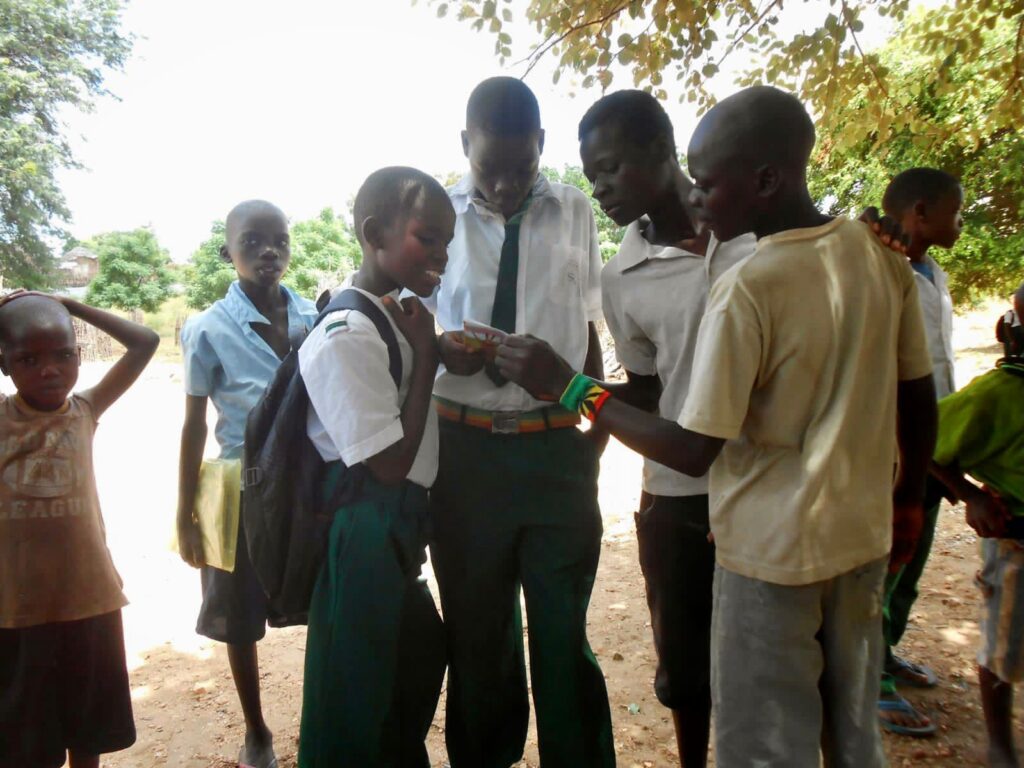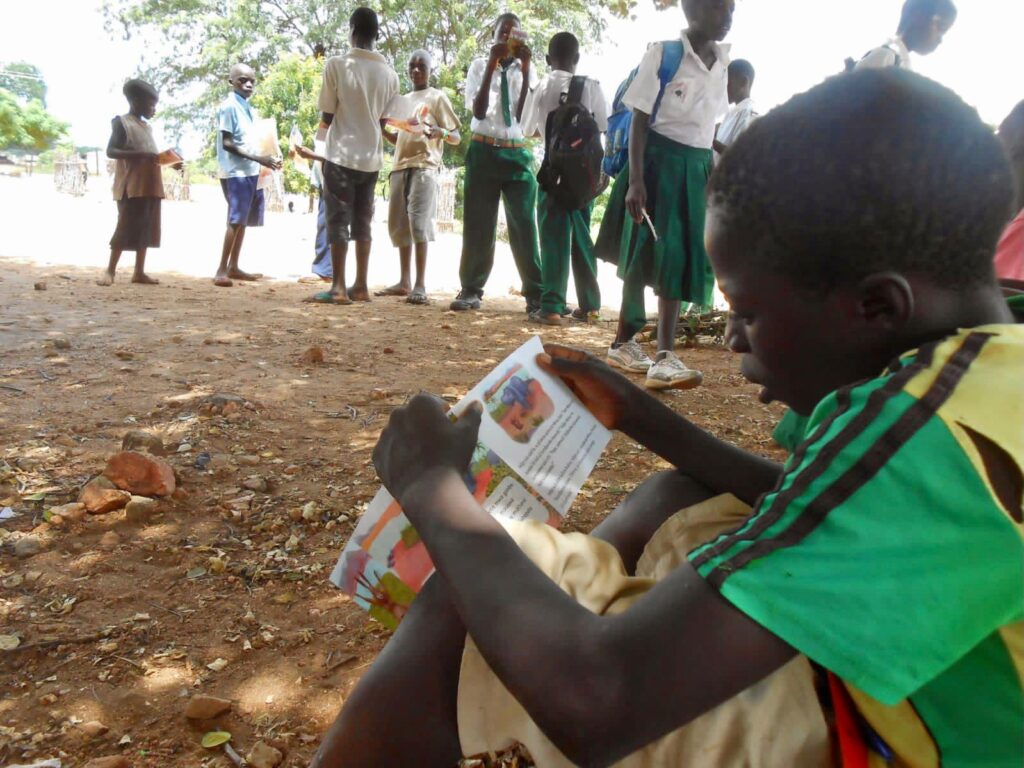The Books are Born:
In 2013, David Ker decided to look into the archives of Nyungwe stories he had collected for language learning in the first years of living in Tete, Mozambique. He chose a few of the folktales that were interesting and seemed appropriate for children. He also wanted to do some one-word picture books to test the format of a folding book. He found free Google images with wild animals and a little bean illustration. The little books about lions, zebras, and snakes and a counting book about beans were his entry into the Nyungwe literature development field! David decided to invest in original illustrations for 5 of the Nyungwe folktales. He wanted artistic, colorful and high quality illustrations for Nyungwe children to grow up with in their new books!
As David no longer lived in Tete, he published his first titles of Little Zebra Books (at the time, they were published as Red Zebra Books) in 2013 in the USA. These were shipped to Tete, Mozambique, and the folding books were born. Printed on one side of an A4 sheet of glossy paper, the books required “do it yourself” folding. The idea was inspired by the IKEA concept of “If I make it, I will love it even if it isn’t perfect.” This proved to be just a little too difficult for any kid in Tete to master. Even adults had a very hard time knowing how to fold pages in half lengthwise and then into an accordion book. The comic layout of the Piggy Party book was also hard for most readers to follow. Everyone loved seeing a Nyungwe story in print! Not everyone could figure out how to read it – primarily because of the formatting and the layout.

New Readers are born:
In 2014 when the Bean Book and the Wild Animal book arrived in Tete, they were already folded “strip books”. I found some literacy advocates in a group of young people at a local church. One of these young women, Veronica Bernardo, was especially gifted in reaching out to kids in the community, and she found great joy in reading with them! In coaching the children to sound out the words on the page in Nyungwe, many of the children over the age of 10 could fairly easily read the Nyungwe text. This ability was based on the syllable drills they practiced unendingly from grade one in Portuguese. “be – ah, ba” or “eme – eh, me” was deeply ingrained in their psyche. It seemed as if one could just point and ask for a letter, and the next letter and the syllable came to mind, fully formed, upon hearing themselves name the letters. Once they put syllables together for the first time, a child listening in would often giggle in recognition of the word in Nyungwe being read by his peer. Kids were reading without expecting to understand – because they had never understood anything they read! Those around them were listening to the reader and picking up the story. The giggles clued them in that they said something meaningful and suddenly, a Nyungwe reader was born. This often took as little as a minute! Once they saw what they could do, they were unstoppable! They turned pages and read words excitedly until the book was done. Some were hard to sound out with the Portuguese syllables, but they used the pictures as clues and they coached each other through the pages. This was the moment that opened the doors for the readers of the future. This was the missing link for many of these kids who were not succeeding in school. They had accessible, attractive, free, and understandable BOOKS that could be carried home and shared with family and friends. The Little Zebra Folding Book had found a place in Nyungwe-speaking communities across the city of Tete.

Veronica Bernardo was unstoppable. She carried bundles of Little Zebra Books by the hundreds to different parts of town. One day a week, she happily set out. Like a “Pied Piper” of Tete, she gathered groups of kids as she passed by. She invited any adults to join the kids for a story. Everything was done in the open and with the permission of neighborhood leaders. Each spontaneous reading session was witnessed by the community where these kids lived. Books and stories were no longer just for inside church walls, or the school classrooms where parents dare not enter. This was a community activity that was shared by any and all who happened to be there. The openness of this reading group was part of the unexpected success!